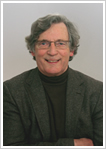Home >
Landing Page >
Lee Kuan Yew Water Prize Laureates >
Professor Gatze Lettinga
Professor Gatze Lettinga
LEE KUAN YEW WATER PRIZE 2009
Citation for Professor Gatze Lettinga

Short Motivation
Professor Gatze Lettinga was awarded the Lee Kuan Yew Water Prize 2009 for his breakthrough, environmentally sustainable solution for the treatment of used water using anaerobic technology. His revolutionary treatment concept enables industrial used water to be purified cost-effectively, and produces renewable energy, fertilisers and soil conditioners. By choosing not to patent his invention, Professor Lettinga made his technology universally available. As a result, his technology has seen widespread adoption in industrial as well as municipal use, especially given increasing concerns about energy efficiency.
Citation
Prof Gatze Lettinga pioneered the widespread use of anaerobic technology which uses micro-organisms in an oxygen-free environment, to remove pollutants in used water. His anaerobic reactor is able to pre-treat polluted used water from industries such as breweries, beverage, paper and pulp manufacturing, sugar, starch and alcohol distilleries.
While the anaerobic technology has been around for over a hundred years, Prof Lettinga made a breakthrough with his invention by proving that anaerobic technology could be operated as a highly effective and self-sustaining process for low and medium strength used waters. It is also a simpler system compared to the aerobic process, as it does away with the use of oxygen, generating energy savings of 30 to 40 per cent. At the same time, energy such as methane, which can be reused as fuel, is produced in the process.
The significant cost savings and treatment superiority have led to rapid adoption of the anaerobic technology worldwide over the past decade. Prof Lettinga's decision not to patent his Upflow Anaerobic Sludge Blanket reactor has made it freely available. Today, the almost 3,000 reactors in operation constitute about 80 per cent of all anaerobic used water treatment systems in the world. With energy-efficiency concerns becoming more critical, this technology is being increasingly applied not just to industrial used water, but also to municipal used water in countries like Brazil and India.
Singapore has adopted some elements of the anaerobic technology to reduce the energy costs of treating used water, which is further purified into NEWater.
About Prof Gatze Lettinga
Prof Lettinga was a professor of Environmental Technology from 1988 until his retirement from Wageningen Agricultural University in 2001. He remains an active Board member with the Lettinga Associates Foundation, a not-for-profit knowledge centre that develops and implements sustainable environmental protection technologies. Prof Lettinga continues to support the education of young scientists working on sustainable environmental technologies through his donations to scholarship programmes administered by the Foundation.
